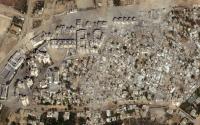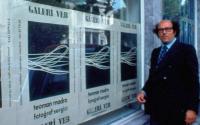by Bryan Bender
New investigations by the Saudi Arabian government and an Israeli think tank -- both of which painstakingly analyzed the backgrounds and motivations of hundreds of foreigners entering Iraq to fight the United States -- have found that the vast majority of these foreign fighters are not former terrorists and became radicalized by the war itself.
The studies, which together constitute the most detailed picture available of foreign fighters, cast serious doubt on President Bush's claim that those responsible for some of the worst violence are terrorists who seized on the opportunity to make Iraq the ''central front" in a battle against the United States.
''The terrorists know that the outcome [in Iraq] will leave them emboldened or defeated," Bush said in his nationally televised address on the war at Fort Bragg in North Carolina last month. ''So they are waging a campaign of murder and destruction." The US military is fighting the terrorists in Iraq, he repeated this month, ''so we do not have to face them here at home."
However, interrogations of nearly 300 Saudis captured while trying to sneak into Iraq and case studies of more than three dozen others who blew themselves up in suicide attacks show that most were heeding the calls from clerics and activists to drive infidels out of Arab land, according to a study by Saudi investigator Nawaf Obaid, a US-trained analyst who was commissioned by the Saudi government and given access to Saudi officials and intelligence.
A separate Israeli analysis of 154 foreign fighters compiled by a leading terrorism researcher found that despite the presence of some senior Al Qaeda operatives who are organizing the volunteers, ''the vast majority of [non-Iraqi] Arabs killed in Iraq have never taken part in any terrorist activity prior to their arrival in Iraq."
''Only a few were involved in past Islamic insurgencies in Afghanistan, Bosnia, or Chechnya," the Israeli study says. Out of the 154 fighters analyzed, only a handful had past associations with terrorism, including six who had fathers who fought the Soviet Union in Afghanistan, said the report, compiled by the Global Research in International Affairs Center in Herzliya, Israel.
American intelligence officials, speaking on the condition of anonymity, and terrorism specialists paint a similar portrait of the suicide bombers wreaking havoc in Iraq: Prior to the Iraq war, they were not Islamic extremists seeking to attack the United States, as Al Qaeda did four years ago, but are part of a new generation of terrorists responding to calls to defend their fellow Muslims from ''crusaders" and ''infidels."
''The president is right that Iraq is a main front in the war on terrorism, but this is a front we created," said Peter Bergen, a terrorism specialist at the nonpartisan New America Foundation, a Washington think tank.
Foreign militants make up only a small percentage of the insurgents fighting in Iraq, as little as 10 percent, according to US military and intelligence officials. The top general in Iraq said late last month that about 600 foreign fighters have been captured or killed by coalition forces since the Jan. 30 Iraqi elections. The wider insurgency, numbering in the tens of thousands, is believed to consist of former Iraqi soldiers, Saddam Hussein loyalists, and members of Iraq's Sunni Muslim minority.
But the impact of the foreign fighters has been enormous. They are blamed for the almost daily suicide attacks against US and Iraqi forces and have killed thousands of civilians, mostly members of Iraq's Shia Muslim majority. Their exploits have been responsible for much of the headline-grabbing carnage recently, contributing to the slide in American public support for the war.
There have been nearly 500 car bombings since the US-led coalition handed over sovereignty to an interim Iraqi government one year ago, US military statistics indicate. In the last two months, car bombs and suicide attacks have killed nearly 1,400 people, according to the Associated Press.
Bush has cited foreign fighters as a reason for continued US military operations in Iraq. His argument, repeated often, is that ''the world's terrorists" have chosen to make their stand in Iraq.
''Some may disagree with my decision to remove Saddam Hussein from power, but all of us can agree that the world's terrorists have now made Iraq a central front in the war on terror," Bush said in a radio address last month.
Foreign fighters were found to be like Saud Bin Muhammad Bin Saud Al-Fuhaid, according to Obaid's research, to be published by the Center for Strategic and International Studies in Washington this summer. Described as in his early 20s, Fuhaid blew himself up March 24, three days after he entered Iraq from Syria, according to newspaper accounts and interviews with his family.
Obaid found little evidence Fuhaid was an extremist before the 2003 invasion of Iraq. Like many of the young men from Saudi Arabia who make up the majority of the foreign fighters, the student at Imam University in western Riyadh was not initially a radical jihadist, according to information gleaned from Saudi newspaper accounts and intelligence operations. In fact, he apparently almost changed his mind.
Fuhaid is believed to have traveled through Syria to fight in Iraq, but once he arrived told his family he would be coming home instead, according to a death notice published in Saudi newspapers and posted on the Internet. ''However, during that time he met some friends of his who were going to Iraq and told him they were going to declare Jihad with their brothers in Iraq," the celebratory announcement said. ''It was at that moment that our martyr changed his mind and told them that he will go back to Iraq with them and called his parents to tell him he won't be going home."
Obaid said in an interview from London that his Saudi study found that ''the largest group is young kids who saw the images [of the war] on TV and are reading the stuff on the Internet. Or they see the name of a cousin on the list or a guy who belongs to their tribe, and they feel a responsibility to go."
Other fighters, who are coming to Iraq from across the Middle East and North Africa, are older, in their late 20s or 30s, and have families, according to the two investigations. ''The vast majority of them had nothing to do with Al Qaeda before Sept. 11th and have nothing to do with Al Qaeda today," said Reuven Paz, author of the Israeli study. ''I am not sure the American public is really aware of the enormous influence of the war in Iraq, not just on Islamists but the entire Arab world."
Case studies of foreign fighters indicated they considered the Iraq war an attack on the Muslim religion and Arab culture, Paz said.
For example, while the unprovoked attacks of Sept. 11, 2001, were largely condemned by clerics as violations of Muslim law, many religious leaders in Saudi Arabia and other Arab nations have promulgated fatwas, or religious edicts, saying that waging jihad in Iraq is justified by the Koran because it is defensive in nature. Last October, 26 clerics in Saudi Arabia said it was the duty of every Muslim to go and fight in Iraq.
''These are people who did not get training in Pakistan or Chechnya, [and they] ended up going to Iraq because they considered defending Iraq a must for every Muslim to go and fight," said Rita Katz, director of the Search for International Terrorist Entities Institute in Washington and an Iraq native.
One indication that a heightened degree of Arab solidarity is a leading factor is that they are almost entirely Arabs and not Muslims from other countries, such as those who volunteered to fight in Afghanistan, Bosnia, and Chechnya. Another motivation, the studies and analysts contend, is the centuries-old struggle between the Sunni and Shia branches of Islam. All the foreign fighters are Sunnis, according to the analyses, and many of their targets are Iraq's majority Shia Muslims, who have gained political power in Baghdad for the first time in hundreds of years.
Ali Alyami, director of the Center for Democracy and Human Rights in Saudi Arabia, said he believes the deep-seated Sunni-Shia rift among the world's 1.2 billion Muslims -- about 1 billion of them Sunni -- best explains the foreign-fighter phenomenon. He noted in an interview that US policy makers do not seem to grasp the historic conflicts within Islam that are playing out in the war in Iraq.
''To say we must fight them in Baghdad so we don't have to fight them in Boston implies there is a finite number of people, and if you pen them up in Iraq you can kill them all," said Bergen. ''The truth is we increased the pool by what we did in Iraq."
Intelligence officials worry that some of ''Iraq alumni" will use the relationships they build on the battlefields of Iraq and return to their home countries as hardened Islamic terrorists.
The CIA's National Intelligence Council concluded in a report earlier this year that ''Iraq and other possible conflicts in the future could provide recruitment, training grounds, technical skills, and language proficiency for a new class of terrorists who are 'professionalized' and for whom political violence becomes an end in itself."





